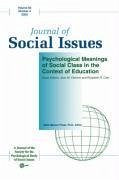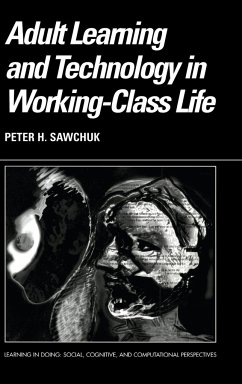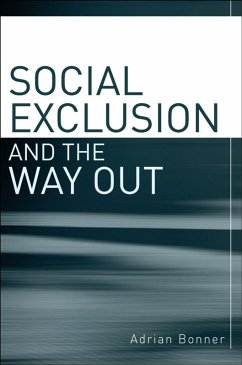
Psychological Meanings of Social Class in the Context of Education
Versandkostenfrei!
Versandfertig in über 4 Wochen
45,99 €
inkl. MwSt.

PAYBACK Punkte
23 °P sammeln!
Every day, in schools and other educational institutions, individuals notice social class, and in doing so create, maintain, and - at times - challenge its psychological meanings. This issue of JSI is an effort to engage psychologists in a critical study of social class; that is, a systematic, research-based literature focused on the exploration of the psychological meaning of social class to diverse groups of people. Because educational institutions both attempt to offer opportunity and, whether intentionally or not, often simultaneously reproduce existing class stratification, the context of...
Every day, in schools and other educational institutions, individuals notice social class, and in doing so create, maintain, and - at times - challenge its psychological meanings. This issue of JSI is an effort to engage psychologists in a critical study of social class; that is, a systematic, research-based literature focused on the exploration of the psychological meaning of social class to diverse groups of people. Because educational institutions both attempt to offer opportunity and, whether intentionally or not, often simultaneously reproduce existing class stratification, the context of education is an ideal stage on which to watch the dynamics and contradictions of class play out in both individual and social psychology. The papers in this issue focus on: understanding attitudes, beliefs and attributions about class; the processes through which education may provide class mobility for some, while maintaining class status for others; and the implications of a critical psychology of social class for both educational policy and practice.












